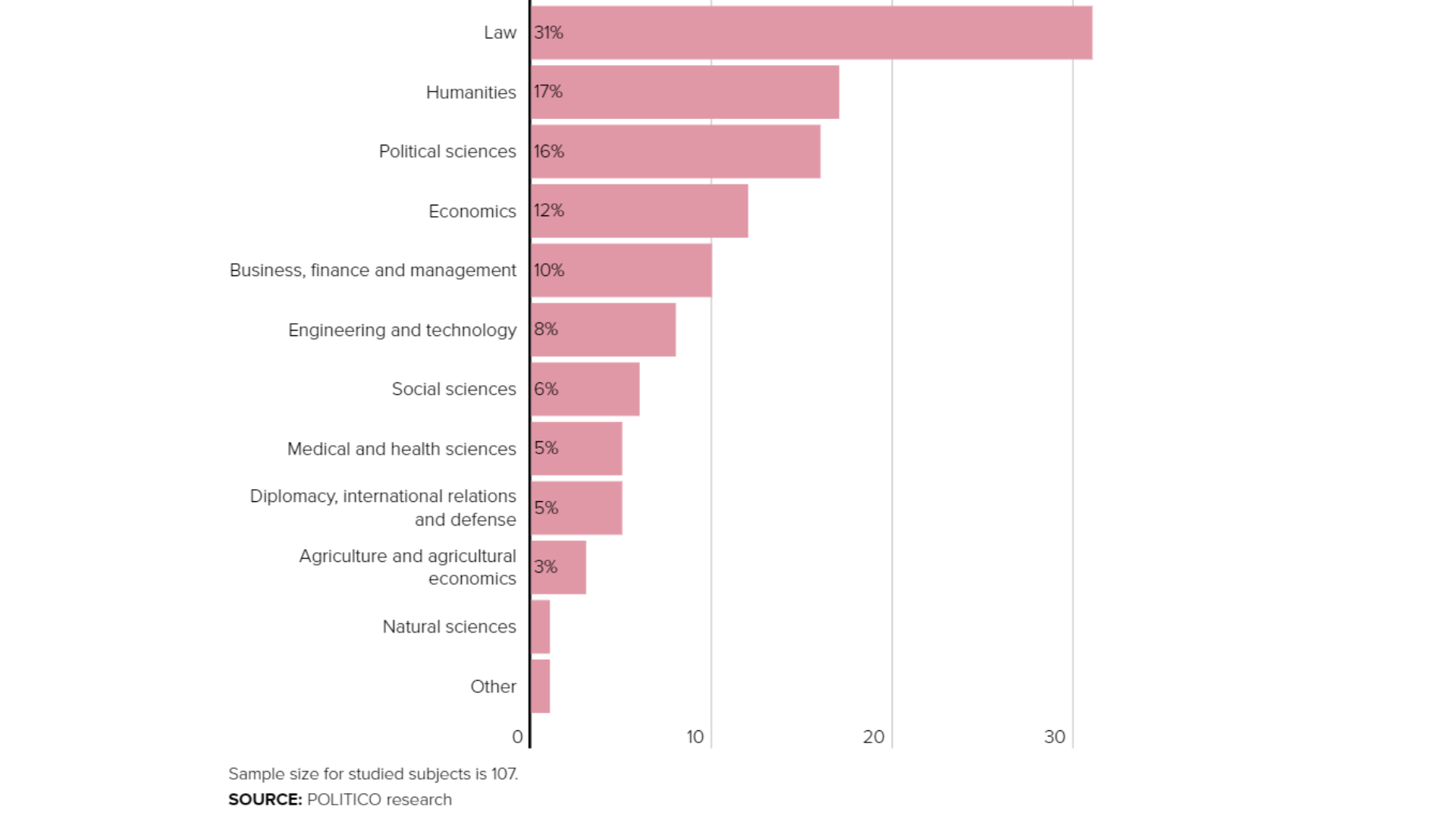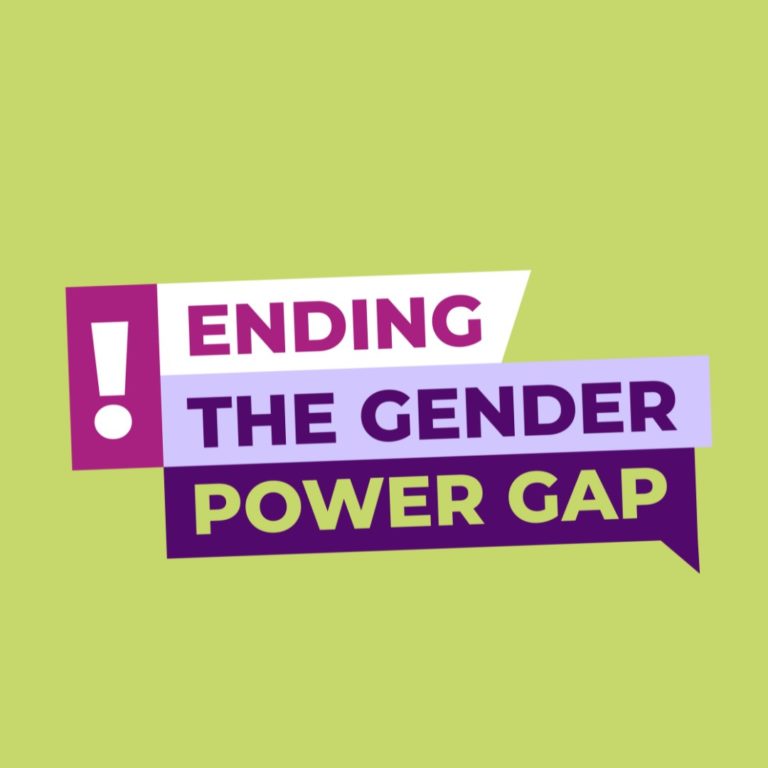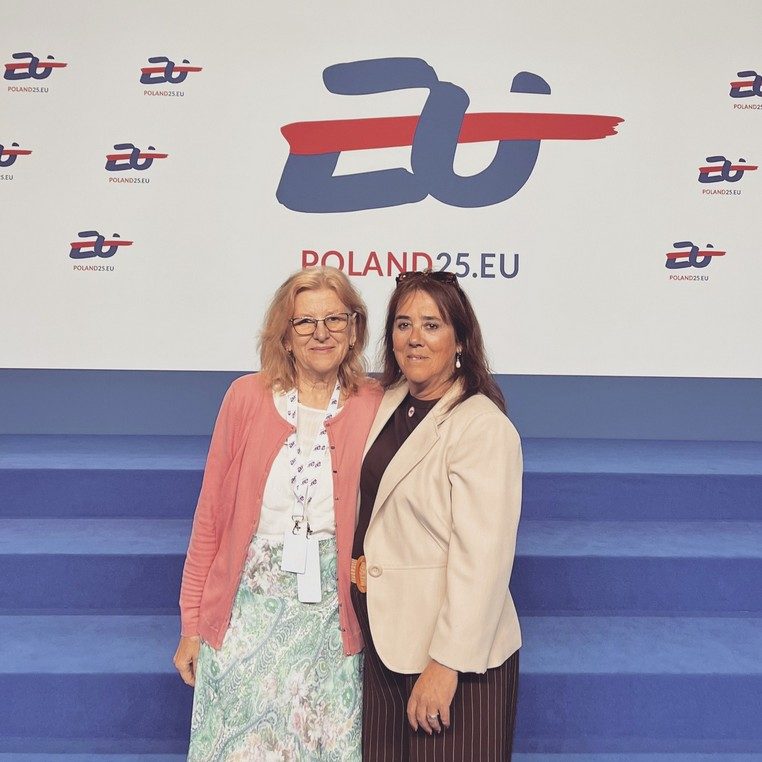POLITICO has compiled a unique dataset on the educational backgrounds of hundreds of senior figures in the EU bubble. Read our statement on the results indicating a clear lack of parity between women and men at the decision-making and leadership positions.
Cornelius Hirsch, William Adkins and Arnau Busquets Guàrdia, 4 February 2021 This article was originally published on POLITICO Europe. The average senior EU official is a 57-year-old man with at least two degrees, one of them in law. That’s the (highly oversimplified) takeaway from an analysis of a unique dataset on the educational background of more than 600 EU bubblers and MEPs compiled by POLITICO from publicly available sources. Amid the rich variety of nationalities and university careers of policymakers at the heart of the EU, the data reveals common themes among those that have achieved seniority and success. The data shows the educational institutions they are most likely to have attended; the degrees they are most likely to have studied; and the years it has taken them to make it into decision-making roles.What to study
To compile the dataset, POLITICO pulled together information on the CVs of over 450 senior EU officials at director, deputy director, and head of unit level within in the Commission, the Council (including senior diplomats) and other EU bodies. We excluded the European courts. We did the same for over 170 MEPs including all committee chairs and vice-chairs in the European Parliament as well as the leaders of the political groups. One clear message from our dataset is that to make it in the EU institutions, you need at least one degree — preferably two or three. None of the senior officials we found data for had skipped university, although 9 percent of MEPs in our sample did not have a degree. On the question of what to study, there’s also a clear answer: nearly a third of both the officials and MEPs hold a law degree at undergraduate or postgraduate level. Non-science subjects such as business, humanities, political science and humanities are all prominent in the data with just 5 percent of MEPs and 2 percent of officials having a medical or health sciences qualification (Commission President Ursula von der Leyen is one of the few exceptions, having trained as a medical doctor and taken a master’s degree in public health.) That’s a problem, says Matthias Girod, secretary general of EuroScience, a grassroots organization for the advancement of science in Europe, “because in tackling the grand challenges like climate change it is crucial to have more scientists also in the position of decision-makers and not only as advisors.” Girod said that many European universities teaching a science subject often place too much focus “on academic research in the public sector and to some extent also non-academic research in business, but less on other career paths.” “We at EuroScience encourage more scientists in any field to consider a career in politics,” he added. –Where to study
Belgian universities top the list of Eurocrat finishing schools, with the College of Europe, Free University of Brussels (ULB) and the Catholic University of Leuven (KUL) in the top three slots (though the College of Europe has campuses in both Bruges and Natolin in Poland). Sapienza University in Rome and the London School of Economics complete the top five. Outside the EU, British universities are prominent, along with Harvard and Stanford from the U.S.BUBBLE ALMA MATERS
Many EU officials chose a Brussels-based institution for their second or third degree. Share of EU officials in the sample who attended each university during their educational career in percentage. Top 25 universities.
Commission top team
Lastly, here’s the educational breakdown for the 27 commissioners that make up von der Leyen’s top team. Nine of them hold three degrees, with 13 having studied outside their home country. The database this analysis is based on was compiled by Nette Nöstlinger, Julia Echikson, Camilla Casale, Will Adkins, Robert Horney, Riccardo Vinci, Áine Cooke, Flavia Sandu, Ivory Kang’ong’oi Leed, Noah Janko Sawo, Maisie McDonough and Guillem Martínez Roura.















